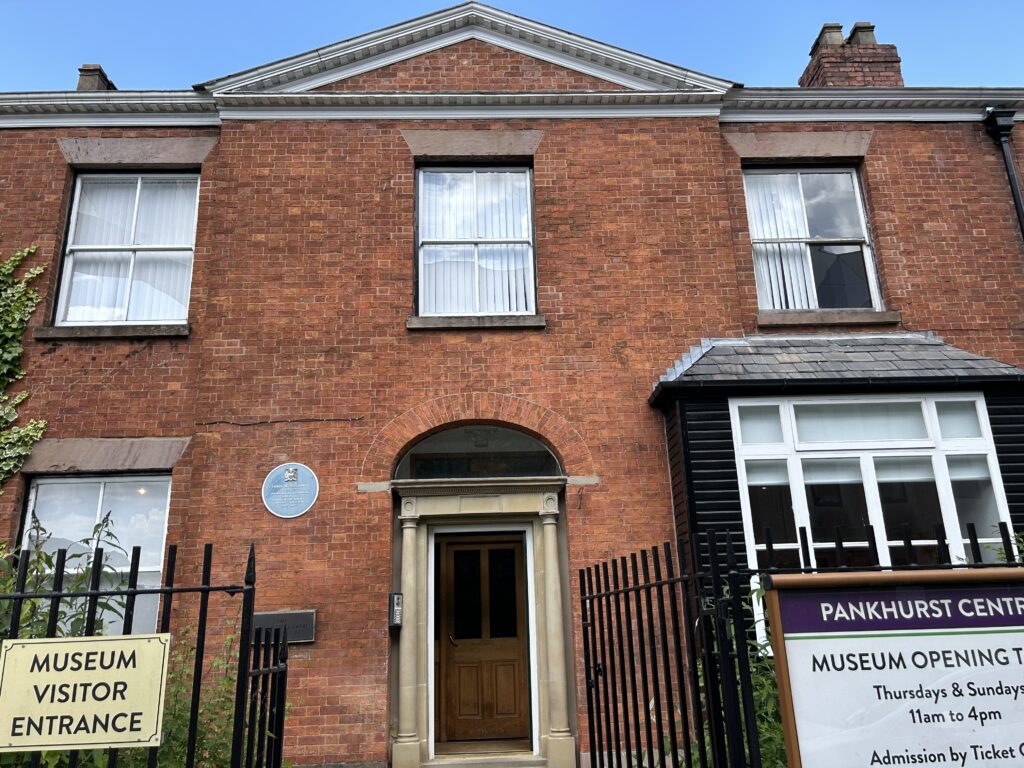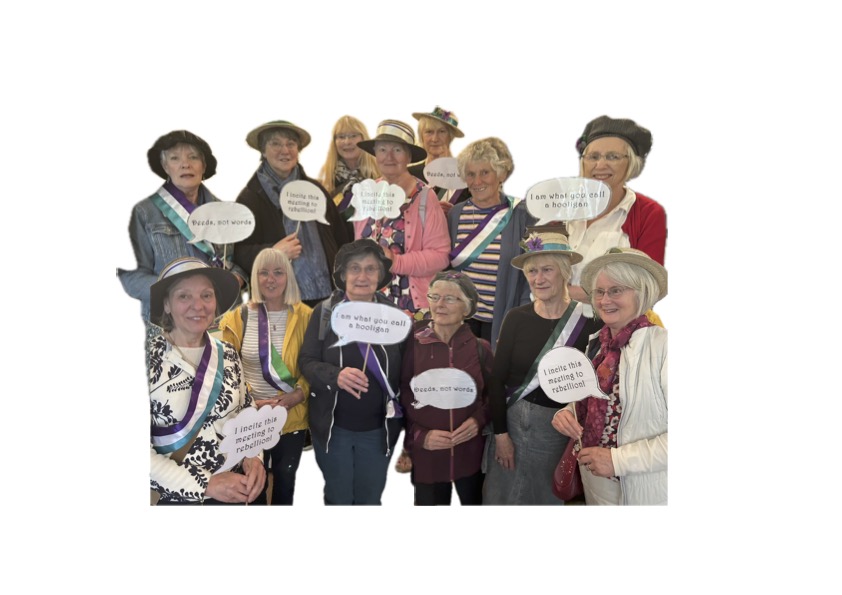Sheffield Fulwood NWR travelled across the Pennines for a trip to Manchester on the trail of two inspiring Manchester women.
Our first port of call was the Pankhurst Museum, family home of Emmeline Pankhurst (1858-1928), narrowly saved from demolition in the 1970’s.
https://www.pankhurstmuseum.com

We saw the recreated family rooms and original artefacts in the Pankhurst’s home, and learned of Emmeline’s development into a capable radical activist for Womens’ Suffrage. The first meeting of the Women’s Social and Political Union (WSPU) took place here in 1903. The WPSU were committed to fighting for the right of women to vote, through direct action. Their motto was “Deeds not Words”
A film recreating some of the highs (and lows) of the Suffragette campaign was shown, as well as a video reflecting the work of 1970’s feminists and supporters in lobbying and fundraising to save the building, which today provides a base for Manchester Womens Aid.
By concentrating on Emmeline Pankhurst and her daughters Christabel, Sylvia and Adela, the museum (and its friendly and approachable staff) offered an excellent insight into the role of the Pankhursts in obtaining votes for women.
After lunch, we visited the home of the novelist (and first biographer of Charlotte Bronte), Mrs Elizabeth Gaskell ( 1810-1865) at 84 Plymouth Grove.
https://elizabethgaskellhouse.co.uk
The daughter and wife of Unitarian Ministers, Elizabeth Gaskell wrote her best known works (eg Cranford, North and South) while living at this house. On the death of the last surviving Gaskell daughter in 1913 the house and contents were sold but the curators of this museum have used the Auction catalogue to furnish the house as accurately as possible. The dining room where Elizabeth wrote, as well as letters from Charles Dickens who published her early work in serial form, and a parlour where guests like Charlotte Bronte were entertained, are delightfully displayed.
Despite being written over 150 years ago Elizabeth Gaskell’s writing confronts social issues such as poverty, social conditions, industrial relations and divisions between people created by class, gender, geographical origins or prejudice. A film was shown which explored the relevance of these themes in Elizabeth Gaskell’s novels today.
It was a Grand Day Out and visits to both of these museums are highly recommended.


